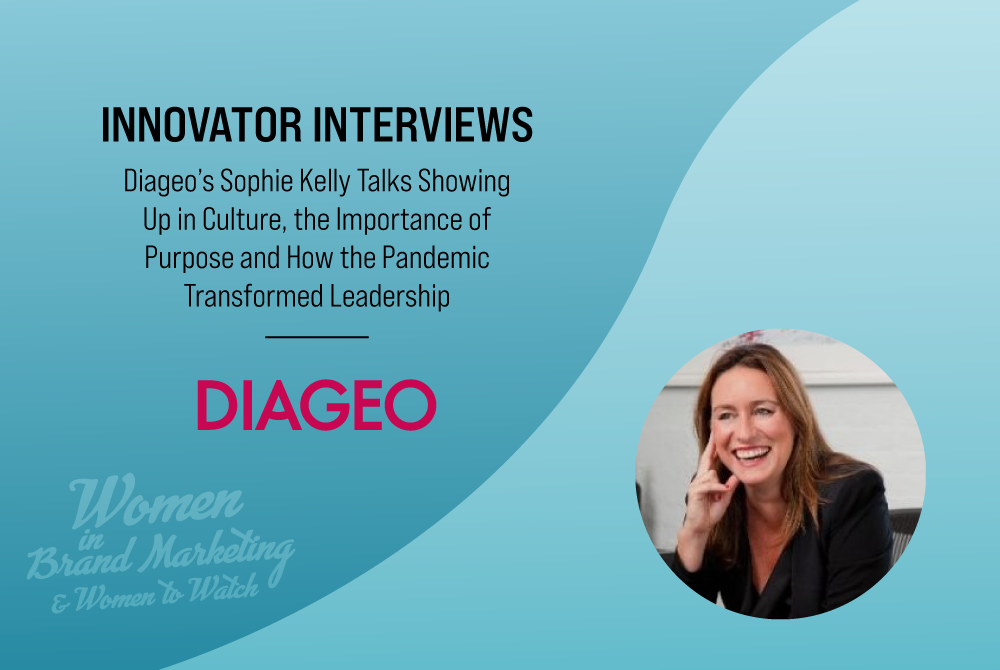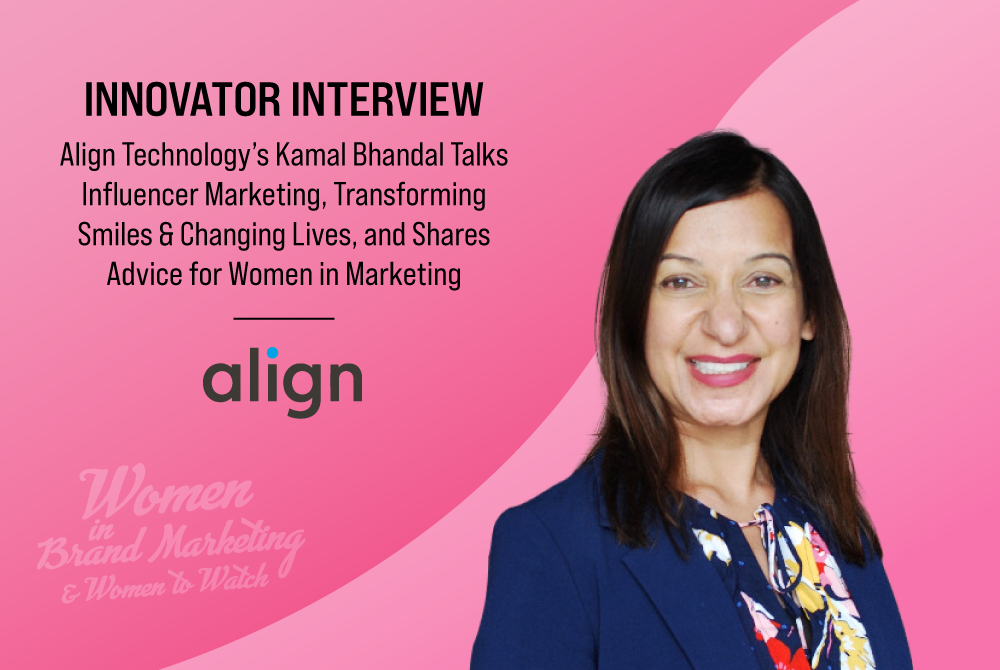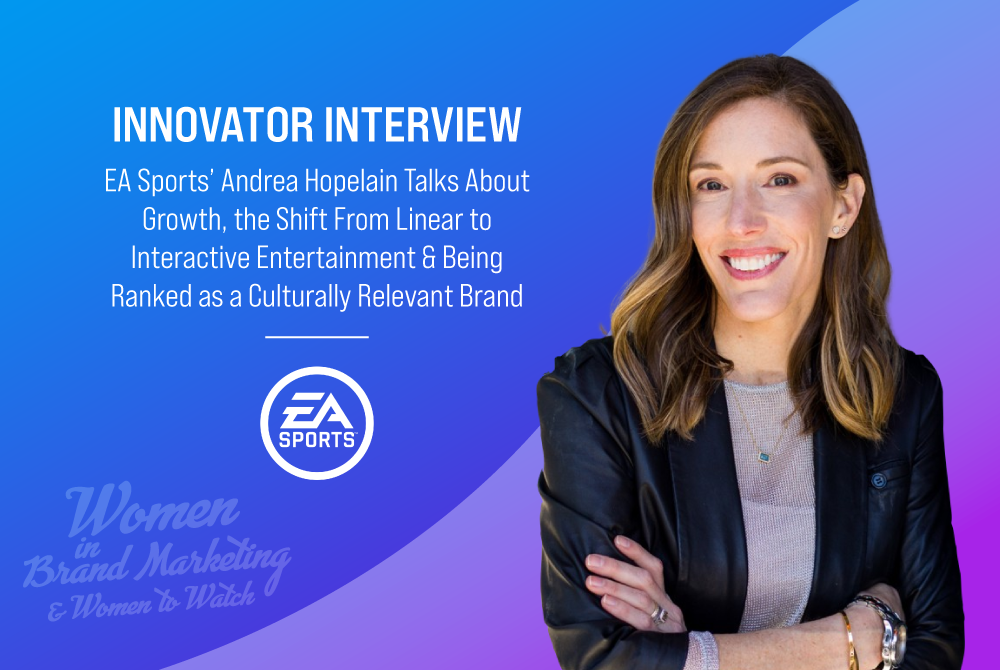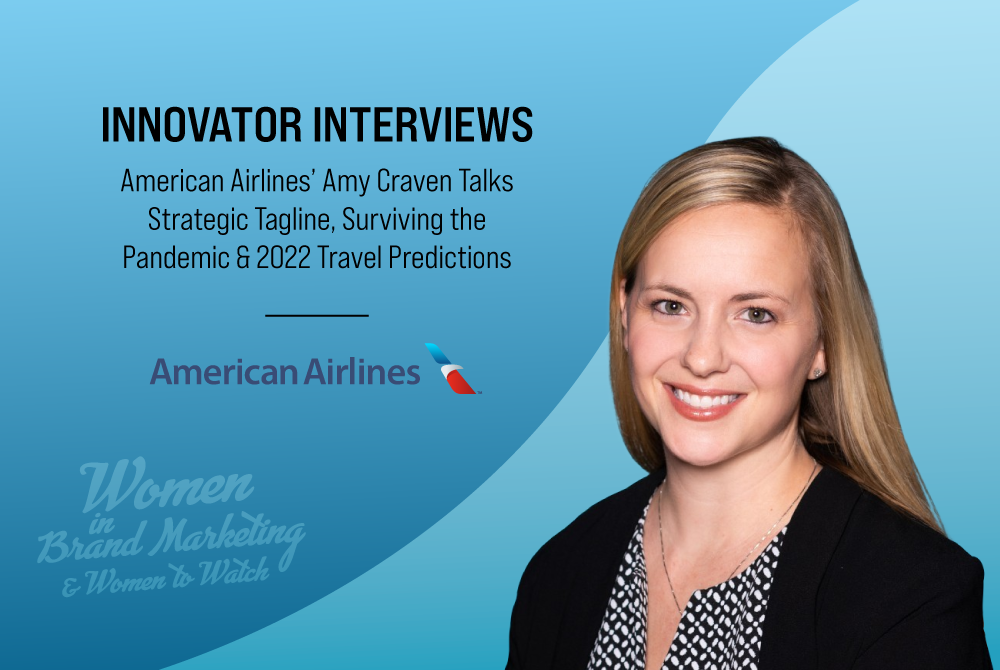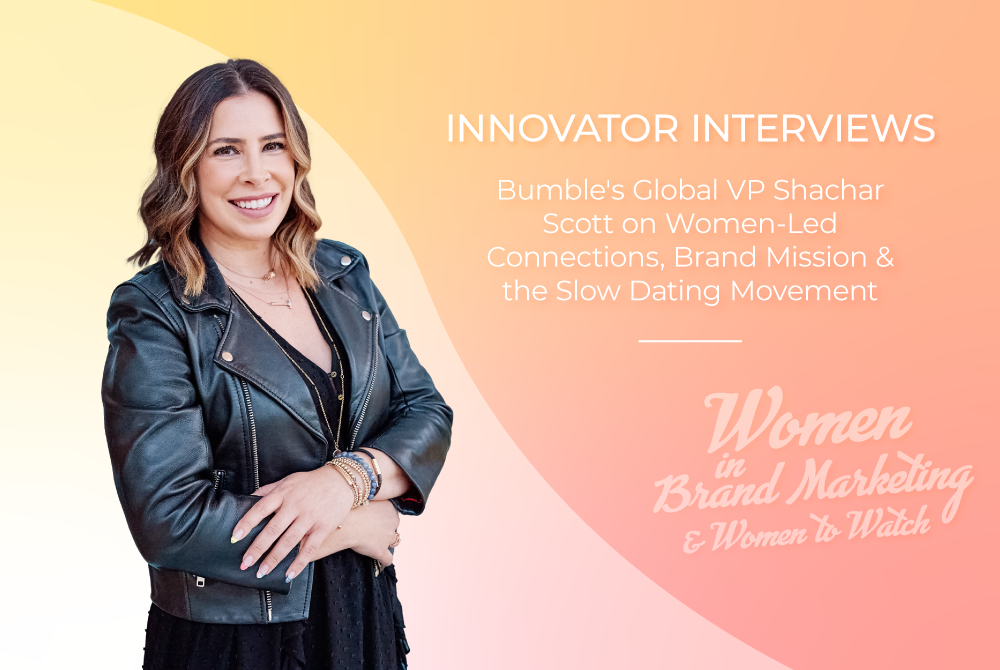Sophie Kelly, Sr. Vice President of Whiskeys Portfolio in North America at Diageo, looks at her career as a series of experiences, like chapters in a book. Kelly, who was recently named to Brand Innovators Women to Watch in Brand Marketing Class of 2021 list, says that women in marketing should always be looking to write their story.
“Always be learning, always be adding, don’t be afraid to do something you know nothing about,” says Kelly. “And to actually grab hold of opportunities, jump into them, and when you do, have a look at it from afar and say, what is the legacy that I am going to leave on this position or this company and then write that story and deliver that legacy.”
Kelly is particularly committed to developing female leadership and paying it forward as she didn’t always know where to look when she wasn’t as connected when she first started out her career. She encourages women to stand up for their value and worth and embrace their boldness and love of transformation, even if that is seen as negative.
“I have been described as having the superpower of being bold and brave and honest in business and I continue to do that and I encourage other women to do that and to be comfortable if you are described as bossy or aggressive. Own it. It is ok,” says Kelly. “Women need to not believe that they need to be differential, they don’t.”
“A lot of people say, how do I get noticed or how do I get to the top. Or what does progress look like? Progress to me looks like, what do I want to bring to this environment, to this company, this brand, what is the legacy I am going to leave on it when I leave and then going about doing that,” she explains. “Getting alignment to do it, causing the change that you believe you can cause and then driving that through in performance. If you stay focused on that, you are probably going to be very successful.”
She also recommends that women follow a career path that excites them. “If you are excited about something, you are probably going to be really good at it,” she says. “Do things you haven’t done before. Do things that excite you because if you are passionate and excited about something, you are going to throw your energy into it in a completely different way and you are probably going to be excellent.”
Brand Innovators caught up with Kelly from her New York apartment to discuss how brands show up in culture, the importance of purpose and how working in the agency world helped Kelly build different creative and leadership muscles. The conversation has been edited for length and clarity.
Can you talk about Diageo’s brand pillars and how these foundations shape your approach to marketing?
It is a lot about understanding how to play in culture and how to be relevant in how you turn up in culture and how you connect in culture. It has got to be around relentless recruitment of new consumers into your experiences and new audiences. A keen eye on innovation, what do people need from you? What kind of experiences are they seeking? Where are they seeking them? Showing up as a brand or company with a conscience is critical.
Crises are never good thing and this one is still going on, but if something good has come out of it, it has been that turning up as a company with a conscious and having a positive impact on the world and being grounded in good and purpose is critical You are not going to get away without being that way. Having shared values with the communities that you are talking to and operating in and supporting the people that support you in business. For our business that is bartenders and people in hospitality.
It is about math and science, which it always has been. It is about using data in a way that provides utility or a kind of value to consumers. There is a lot of conversation around quality marketing. Yes, you need to understand quality marketing but you still need to use data to provide consumers with inspiration, education, utility and entertainment to bring them into your brand experiences.
At Diageo, we deserve, desire, ease and good. Create desire for our experiences, and what we offer people, make it easy for people to transact with us and access those experiences and then be grounded in good.
What did the pandemic mean for your company, your approach to media/digital and how are you emerging from it?
When you think about people and company, one of the things that I thought was fascinating was the definition of leadership and how that changed and how that was recognized and the kind of leaders that emerged through the pandemic. People needed to be ok with ambiguity, they needed to be ok with changing financial environments and activities, they needed to look at the cultural climate in a completely different way and work out how they were going to go to market that was relevant and sensitive and empathetic and right for the moment in the culture that we were dealing with.
What you saw was that leaders emerged that were ok with ambiguity and who had an opportunity to find direction and create things and get them out there to move the agenda forward. That sense of entrepreneurialism and drive and decisiveness was observed across all layers and companies. Ideas people and transformative thinkers who are sometimes a little hard to swallow, really rose to the top, because when everything goes to chaos, it is those kind of people who enjoy the ambiguity and the dynamics and the listening to culture, who became energized with ideas to help and to connect in culture in a relevant way.
The notion of leadership and what companies saw as leadership and leaders who emerged was really a big positive out of the pandemic. Also relationships have evolved. We just spent two years inside each others’ homes. You will probably hear my dog bark in a second or something else will happen. There is a level of transparency, understanding, empathy and humanity that we have for people that I don’t think we had before.
If we are a company that lives at the intersection of socializing and lives in the hospitality industry and stands for celebrating life every day, every way, what does that mean through this time? What it means, is we better get in the game of supporting those that support us. Bartenders, bars, clubs, restaurants, the hospitality industry, our job became, how are we going to pivot to help them?
What did that pivot look like?
If I were to sum it up in what the biggest pivot was, it was that we had to take an approach that was around respecting the cultural climate we were living in, doing actions that supported people and that had impact far beyond measurement and CPMs and the normal rate of investment on activities.
From an innovation perspective, we put everything in a can, supporting bartenders to make craft cocktails for people to create at home, so a whole lot of different partnerships and formats were born out of the pandemic.
We were already connected with the hospitality industry but what we really needed to work out how to support them and what that became is rather than turning our marketing off, we turned it into support. It was important to get bartenders working and connected with consumers and consumers wanted quality cocktails. We did tips from home platform which is where every time you made a drink, take a photo of it, upload it with #tipsfromhome, we will tip a bartender in our community.
This past summer, Bulleit Frontier Whiskey encouraged New Yorkers to go out. Can you talk about this effort and why connecting with the bar and restaurant community is so important at this time?
This was all about the most recent activity with Tribeca was all about the fact that our brands sit at the heart of socializing and we have just been in an 18 months period where the cities haven’t had their experiences, they haven’t had their festivals, they haven’t had their music, so part of our role was, we have got to support these festivals to get back. And how are we going to support people and the local community around festivals like bars and restaurants, well we are going to do the first drink on us. What does that do? It just encourages people to get out there.
Our business is an in real life business. We operate in a digital universe, yes, but we operate our businesses in real life, so we had to take them all digital through the pandemic. And I think we did a really good job of that. We put cause at the heart of it. So we worked with influencers to do concerts and we made donations to people who needed assistance at this time. What you have seen in the recent Bulleit stuff, the first drink on us, is an example of us continuing that support level as things reopen.
Again I am going to say, we wouldn’t miss the last 18 months on anyone, it was horrendous. It is still horrendous for people, and will be for a long time. But out of that period, what we are very proud of is how we turned marketing to actually support those who support us and actually bring partnerships and new formats and new experiences into consumers homes that had cause at the heart of it.
Before you were at Diageo, you spent years holding roles at Pepsi, The Barbarian Group and JWT. Can you talk about what you learned through these experiences that you have brought to your current role?
I was really lucky because I worked in agencies for a long time. I was an account person, I understood how to run a really fierce project. Iwas in planning and in media, so mining data and thinking about consumer insights and constructing communication plans and platforms was always deeply ingrained in how I thought and looked at ideas. At JWT, I did both US business and global business, so I saw the importance of stepping into the future as a kind of global leaders and helping brands in markets think about the next five years vs the immediate performance deliverables that they had in the short term,
If I think about my change out of that into something like Barbarian, which was an amazing journey for me, to help transform what was the coolest digital production shop into a full service agency, was a real business challenge. It was about taking the skills and the story and the heart of that agency and transferring it for really big multinational clients. We started to become known as the people who could create a digital ecosystem and a digital story for brands in a way that other agencies didn’t. It was about transforming PNL from multiple projects to core big businesses, it was about adding capability and talent and resources and accessing resources and ultimately about understanding what happens when your company gets fully bought out and getting your head about that change.
A new chapter at Diageo, I have learned about supply, value chain, manufacturing, what it takes to take new innovation to market, PNL management, taking brand distilleries and turning them into retail hospitality consumer destinations, really driving the Society 2030 goals for Diageo around inclusivity and diversity and sustainability, what it means to turn up and be a brand of good is something that I am hugely passionate about. We have done some great work, such as the first carbon-neutral distillery in Kentucky and much much more to come.
I have always believed that creativity helps transform business and that learning and understanding things is what keeps you getting up every day. I have brought this sense of creativity and transformation to this role and I have learned a lot about manufacturing and supply and the business from that perspective that I would not have done in the agency world. It ticks all boxes for me because it is big business, we are making stuff and there is lots of room to transform and we have good at the heart of how we are doing everything. It’s another chapter.
